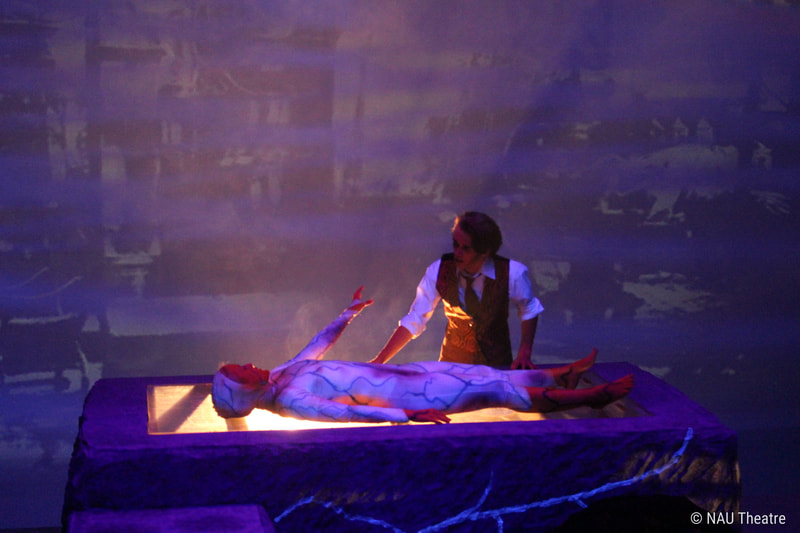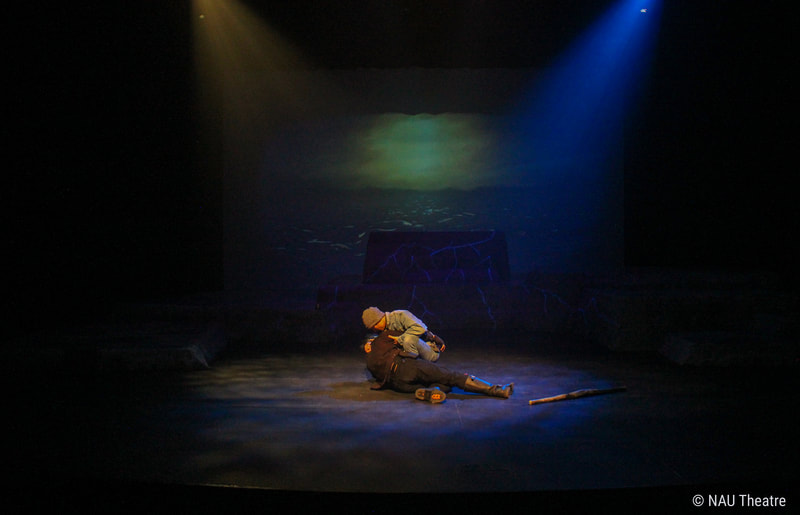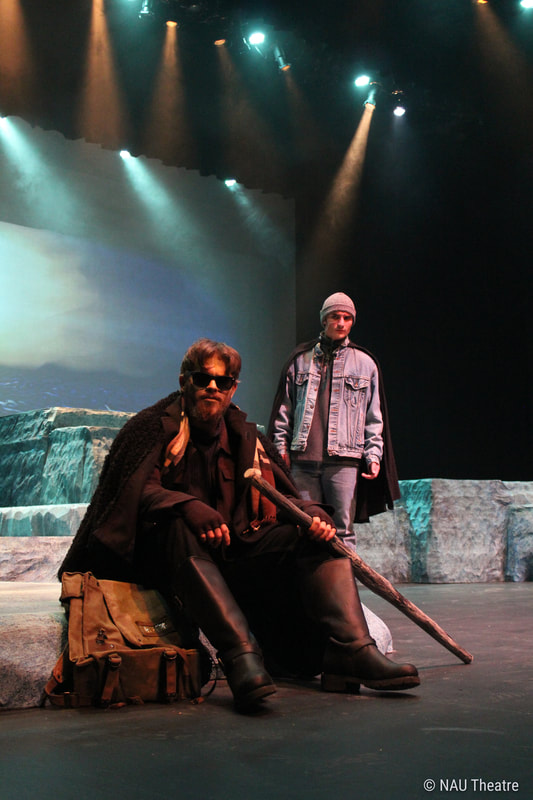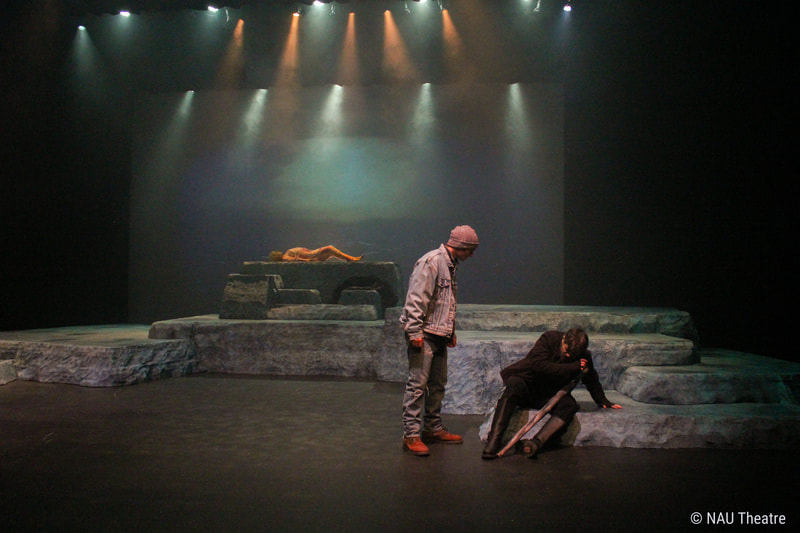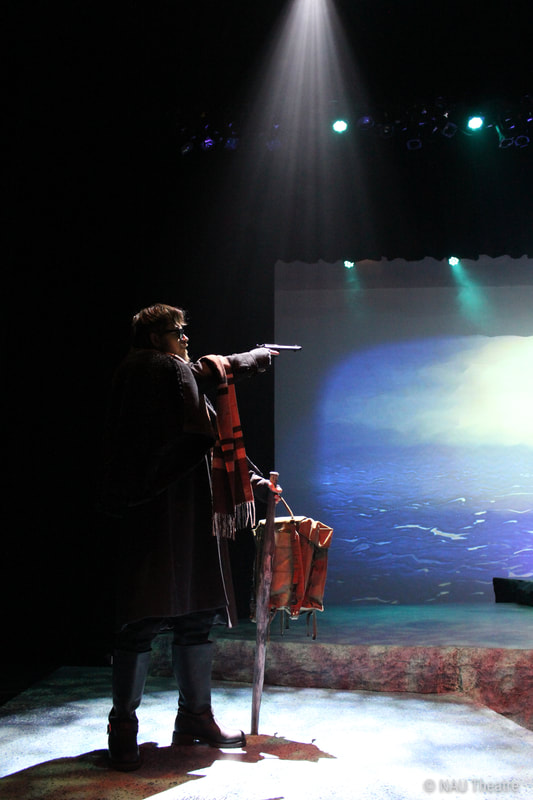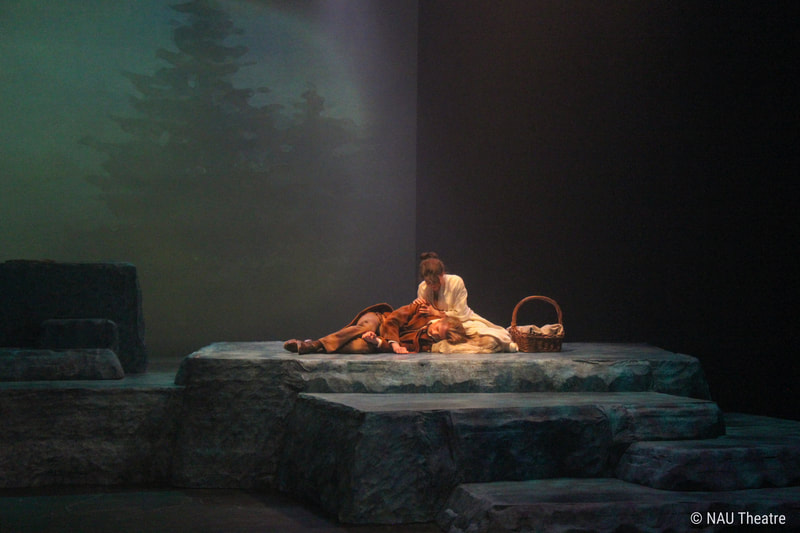Christina Gutierrez-Dennehy
I often say to my students that horror films are the quickest way to understand a culture’s deepest fears. A society that fears disease and infection spawns countless zombie films. One conditioned to be scared of invasion by another country produces movies about unknowable aliens. This connection between the horror genre and societal fear is of course present in Barbara Field’s adaptation of Frankenstein. This Creature is of course a metaphor for the process of Othering, i.e. for the fear that some feel in the face of things or people that seem foreign. The Creature speaks eloquently not only of the revulsion with which humans greet him, but also of the violence that accompanies these reactions. People throw stones at him out of a fear that his difference makes him dangerous.
Still, in this version of the story, the Creature is more than just a metaphor for fear. Field’s Creature is driven by a desire to know the reason for his creation. In turn, Frankenstein’s hesitation to kill the Creature stems from an equally obsessive desire to gather data about his creation. The similarity of these quests for knowledge suggests that Frankenstein has not created an inhuman monster, but rather a reflection of himself. Field’s is not the monster of Hollywood monster movies, but the result of a very human desire to know the unknowable. This Creature—with his deep desire to understand love, faith, and empathy, is in many ways more human than his maker. What Field’s play explores, then, is not a fear of the other, but a fear of ourselves. Frankenstein and his Creature are mirror images of each other, struggling to define themselves in relation to each other. Their twined journeys through the play and through memories of their past lives brings them momentarily together at the top (or the end) of the world. It is in this moment of connection that we find both the beauty and the heartbreak of their story. I invite you into this strangely familiar world and hope that you take a moment to consider what it is that frightens us now, and what that fear reveals about our common humanity.
Still, in this version of the story, the Creature is more than just a metaphor for fear. Field’s Creature is driven by a desire to know the reason for his creation. In turn, Frankenstein’s hesitation to kill the Creature stems from an equally obsessive desire to gather data about his creation. The similarity of these quests for knowledge suggests that Frankenstein has not created an inhuman monster, but rather a reflection of himself. Field’s is not the monster of Hollywood monster movies, but the result of a very human desire to know the unknowable. This Creature—with his deep desire to understand love, faith, and empathy, is in many ways more human than his maker. What Field’s play explores, then, is not a fear of the other, but a fear of ourselves. Frankenstein and his Creature are mirror images of each other, struggling to define themselves in relation to each other. Their twined journeys through the play and through memories of their past lives brings them momentarily together at the top (or the end) of the world. It is in this moment of connection that we find both the beauty and the heartbreak of their story. I invite you into this strangely familiar world and hope that you take a moment to consider what it is that frightens us now, and what that fear reveals about our common humanity.
